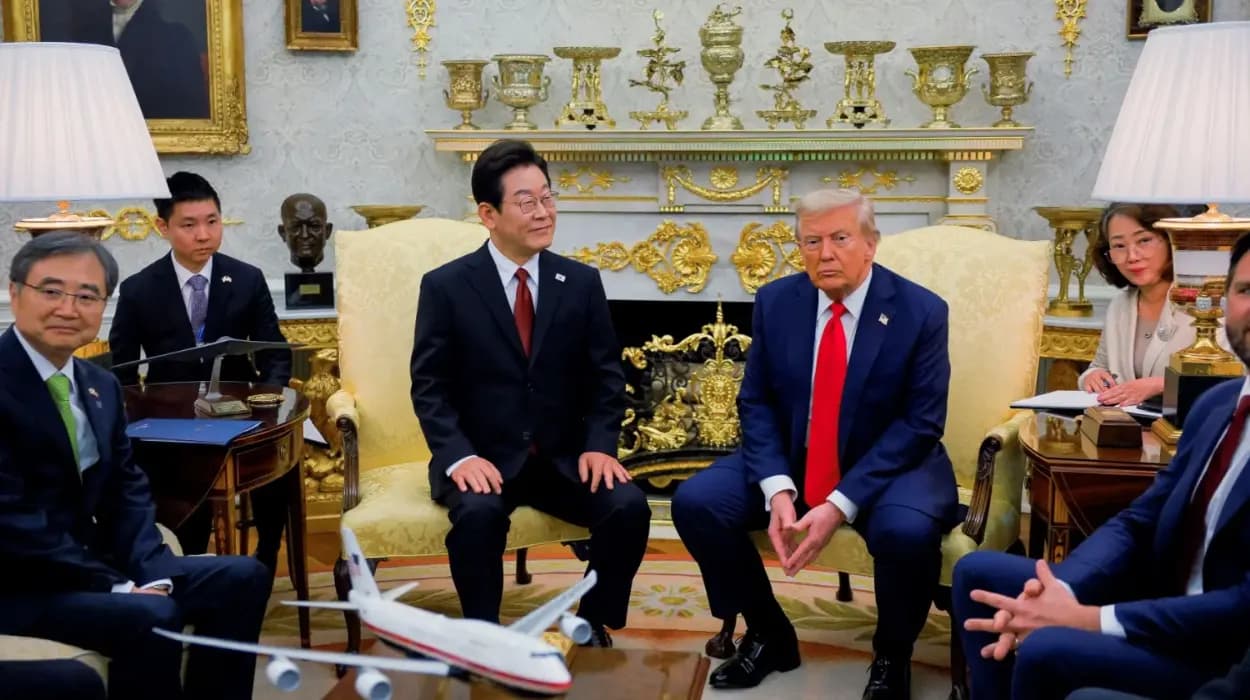Türkiye is considering a trilateral collaboration with the
United States and South Korea for its second planned nuclear power plant,
potentially expanding its nuclear energy capacity. Energy Minister Alparslan
Bayraktar indicated progress in talks with multiple countries on new nuclear
projects alongside the ongoing Akkuyu plant in southern Türkiye.
Türkiye's Second Nuclear Plant Plans
As reported by Alparslan Bayraktar, Türkiye's Energy and
Natural Resources Minister, Türkiye may work jointly with the United States and
South Korea to develop its second nuclear power plant, possibly in a trilateral
partnership. This development was detailed during an interview with CNN Türk,
where Bayraktar mentioned that discussions on new nuclear projects are underway
with Russia, China, Canada, and South Korea for sites planned in northern Sinop
and western Thrace regions of Türkiye.
The ongoing Akkuyu Nuclear Power Plant constructed by
Russia's Rosatom is the first of three conventional nuclear power plants planned
for Türkiye, aimed at boosting the country’s nuclear capacity and energy
security. Bayraktar highlighted that Türkiye seeks access to affordable energy,
technology transfer, and know-how from these investments, mirroring the accord
achieved with Russia for the Akkuyu project.
Existing Akkuyu Nuclear Power Plant
The Akkuyu plant, designed with four reactors producing a
total capacity of 4.8 gigawatts, is scheduled to start its first unit in 2026,
eventually providing around 10% of Türkiye’s electricity. The project follows a
Build-Own-Operate model with Russian firm Rosatom leading construction in
Mersin province. Officials anticipate additional reactors for Akkuyu in 2027
and 2028, with Türkiye targeting 7.2 GW of nuclear capacity by 2035 and 20 GW
by 2050 overall.
Cooperation with International Partners
Bayraktar further mentioned that alongside the trilateral
consideration with the US and South Korea, President Recep Tayyip Erdoğan held
discussions with the leaders of Canada and France on nuclear cooperation
covering both small modular reactors and conventional plants. The planned
collaboration with the US includes small modular reactor technologies as well
as larger conventional reactors, aiming to build diverse technological
partnerships for nuclear energy advancement.
Canada’s Candu Energy is also in talks to be involved in the
planned nuclear facilities, indicating a broad international participation in
Türkiye’s expanding nuclear energy programme.
Trilateral Cooperation Model
The trilateral framework suggested by Bayraktar involves
cooperation between Korea, the United States, and Türkiye. This model could not
only accelerate Türkiye’s nuclear ambitions but also enhance knowledge-sharing
and technological development crucial for the country’s long-term energy strategy.
Bayraktar reiterated the expectation that the first reactor at Akkuyu would be
operational by 2026, setting the stage for subsequent nuclear projects with
international partners.
Future Nuclear Power Projects
Beyond Akkuyu, Türkiye is advancing plans for two additional
nuclear power plants: the Sinop plant on the Black Sea coast and the Thrace
plant in the country’s western region. The Sinop project includes competition
between Russia’s Rosatom and South Korea’s KEPCO, the latter proposing APR1400
reactors. The Thrace plant is led by China’s State Power Investment
Corporation, showcasing Türkiye’s approach to engaging multiple global
technologies to diversify and strengthen its nuclear sector.
In addition to these large-scale plants, Türkiye actively
pursues small modular reactor (SMR) technology through partnerships with
companies such as Westinghouse Electric and Rolls-Royce. Legislative frameworks
to support SMR deployment are anticipated soon, further broadening Türkiye’s
nuclear capabilities.
Energy Security and Technology Transfer
Minister Bayraktar emphasized Türkiye’s aim to secure cheap,
reliable energy and technological know-how through international cooperation.
The country’s energy strategy includes leveraging liquefied natural gas
infrastructure for regional cooperation and export, alongside its long-term
nuclear goals. Türkiye recently began using floating storage regasification
unit (FSRU) ships for export, demonstrated by an accord with Egypt, further
positioning Türkiye as a regional energy hub.
Türkiye’s nuclear energy ambitions are marked by broad
international cooperation, aiming to boost the country’s energy security and technological
capability through partnerships with Russia, China, Canada, South Korea, the
United States, and others. The second nuclear power plant project is poised to
potentially involve trilateral cooperation between Türkiye, the US, and South
Korea, distinguishing Türkiye’s nuclear roadmap by its diversified global
engagements and comprehensive ambitions to grow its nuclear sector
significantly by 2050.
